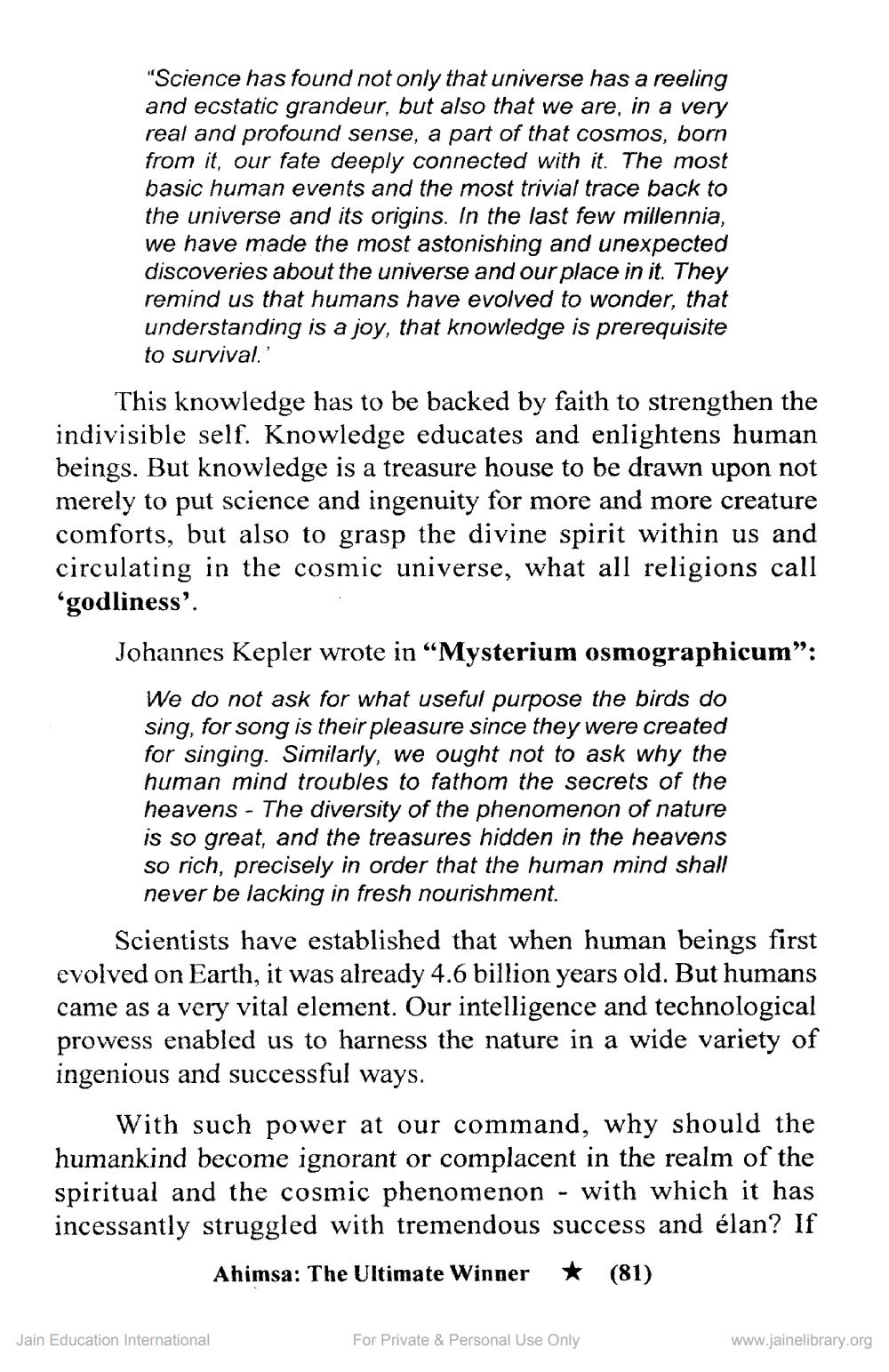________________
"Science has found not only that universe has a reeling and ecstatic grandeur, but also that we are, in a very real and profound sense, a part of that cosmos, born from it, our fate deeply connected with it. The most basic human events and the most trivial trace back to the universe and its origins. In the last few millennia, we have made the most astonishing and unexpected discoveries about the universe and our place in it. They remind us that humans have evolved to wonder, that understanding is a joy, that knowledge is prerequisite
to survival.'
This knowledge has to be backed by faith to strengthen the indivisible self. Knowledge educates and enlightens human beings. But knowledge is a treasure house to be drawn upon not merely to put science and ingenuity for more and more creature comforts, but also to grasp the divine spirit within us and circulating in the cosmic universe, what all religions call 'godliness'.
Johannes Kepler wrote in “Mysterium osmographicum”:
We do not ask for what useful purpose the birds do sing, for song is their pleasure since they were created for singing. Similarly, we ought not to ask why the human mind troubles to fathom the secrets of the heavens - The diversity of the phenomenon of nature is so great, and the treasures hidden in the heavens so rich, precisely in order that the human mind shall never be lacking in fresh nourishment.
Scientists have established that when human beings first evolved on Earth, it was already 4.6 billion years old. But humans came as a very vital element. Our intelligence and technological prowess enabled us to harness the nature in a wide variety of ingenious and successful ways.
With such power at our command, why should the humankind become ignorant or complacent in the realm of the spiritual and the cosmic phenomenon - with which it has incessantly struggled with tremendous success and élan? If
Ahimsa: The Ultimate Winner * (81)
Jain Education International
For Private & Personal Use Only
www.jainelibrary.org




